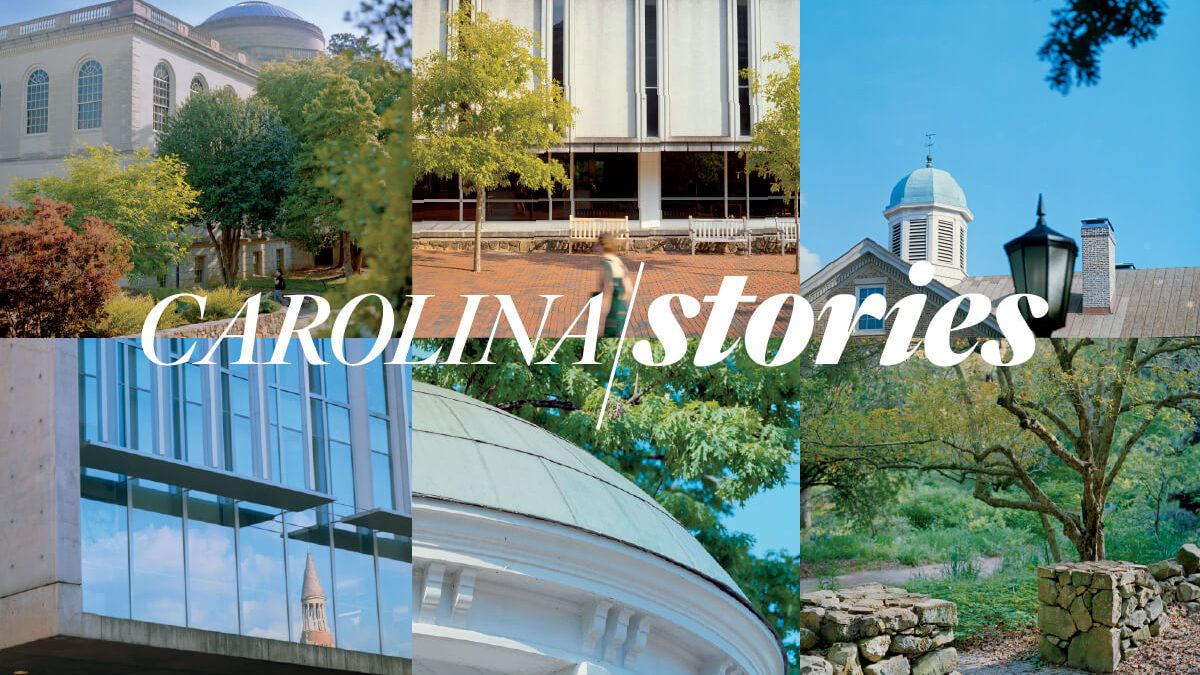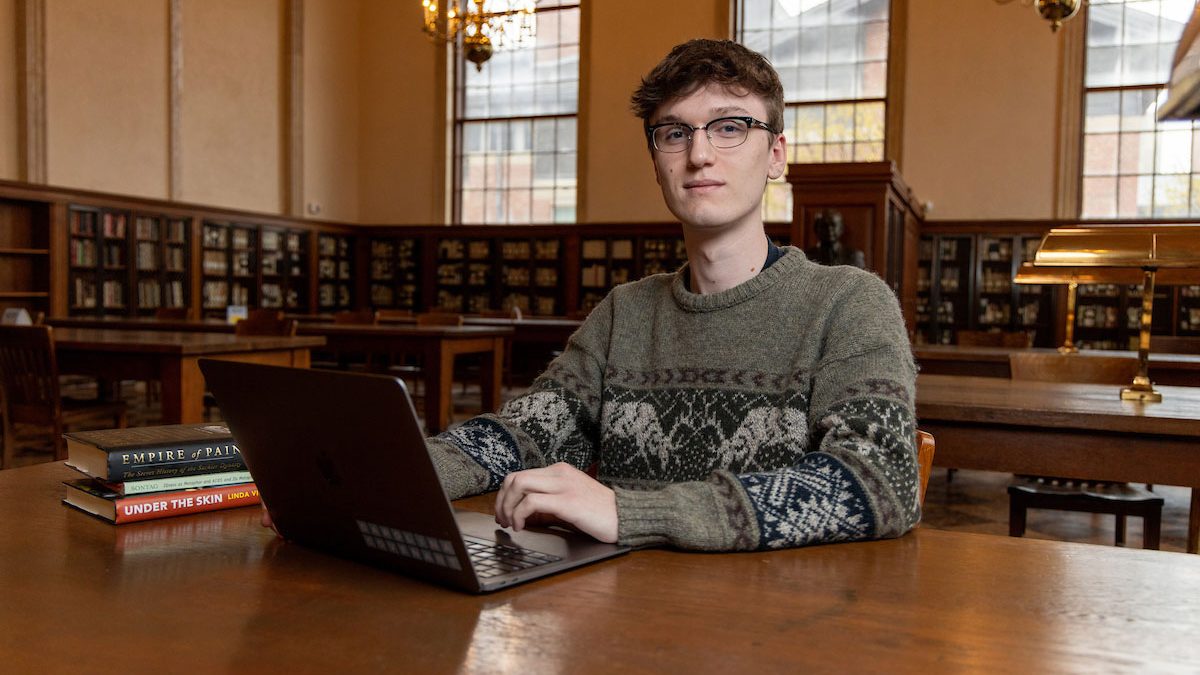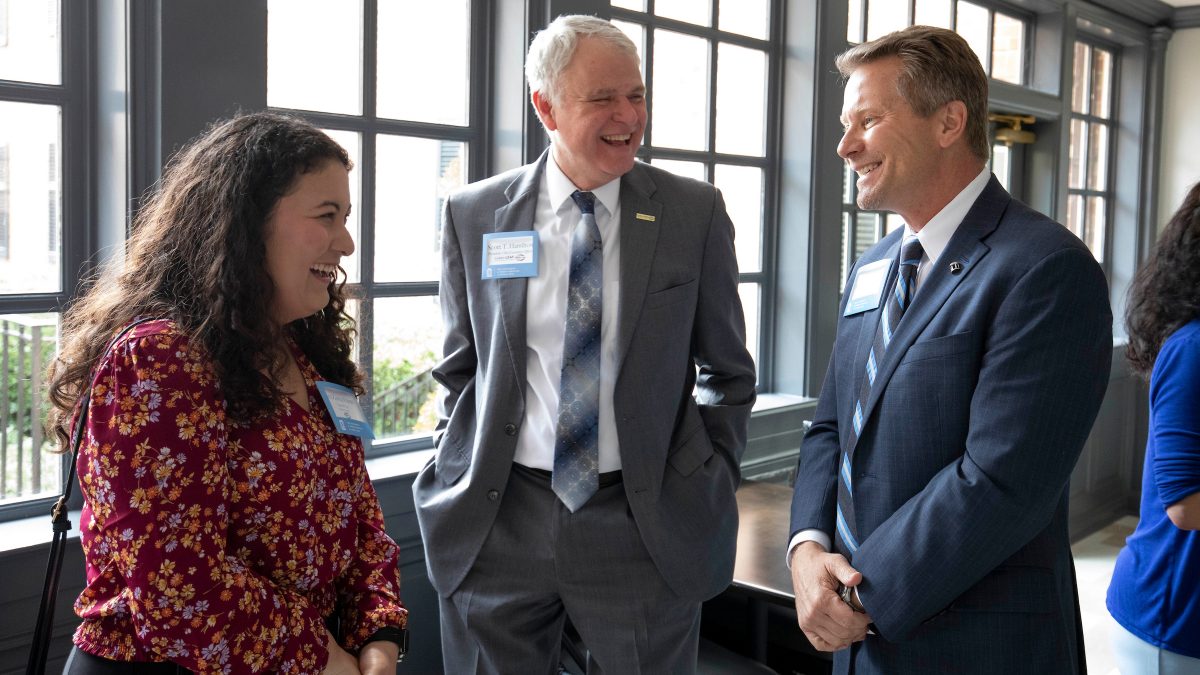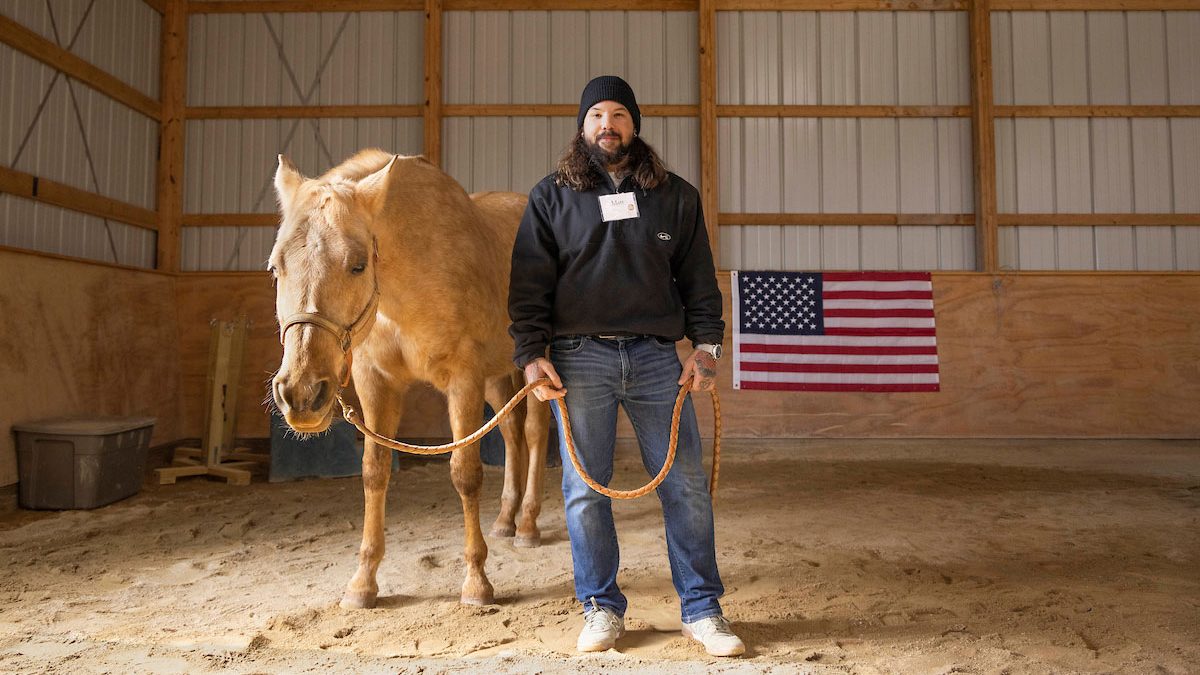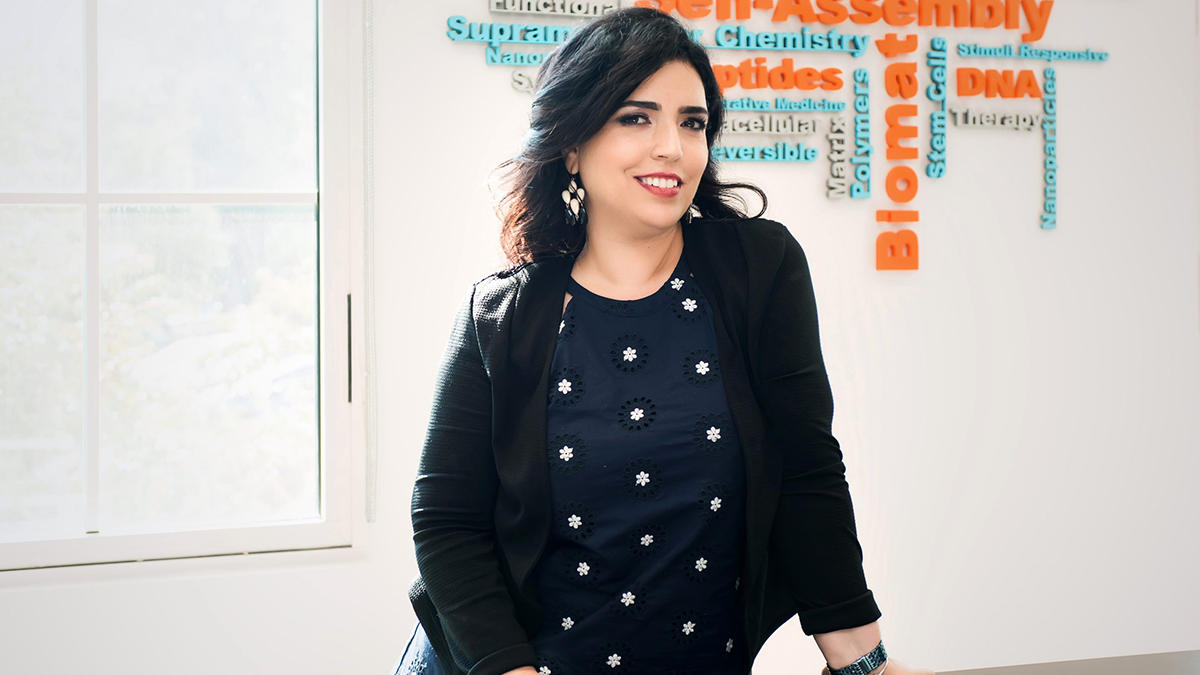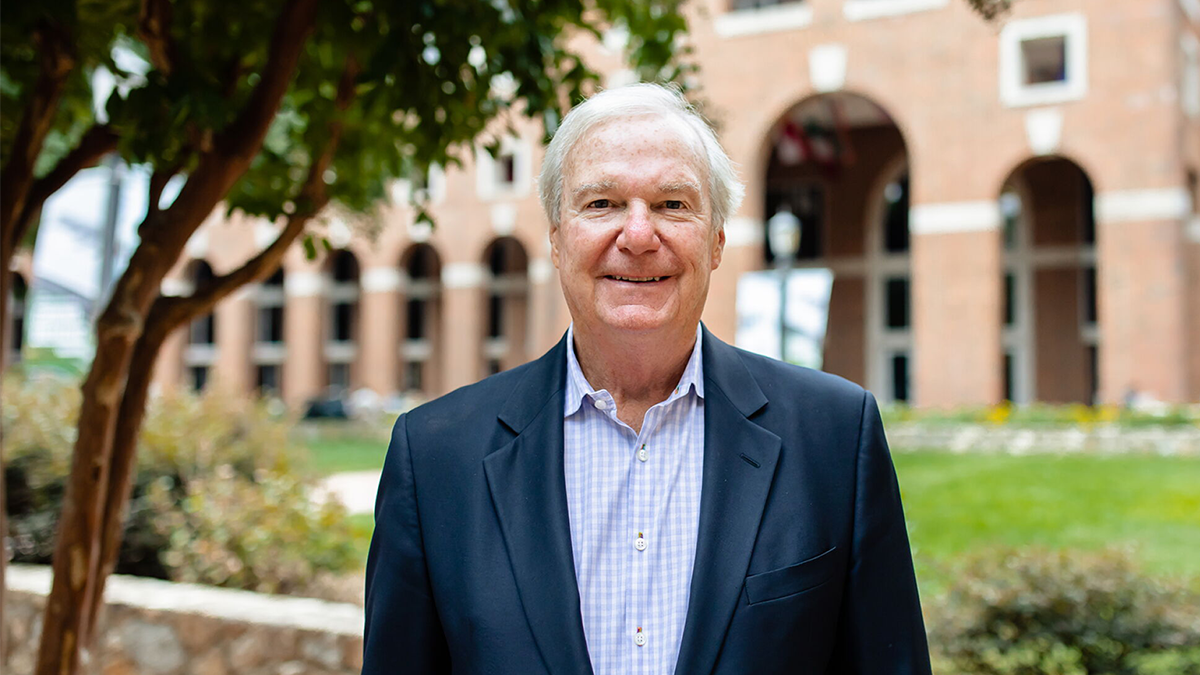Collaborating To Benefit The Greater Good
For more than 40 years — half of those at Carolina — Greg Forest, the Grant Dahlstrom Distinguished Professor of Mathematics, has generously shared his mathematical expertise with those around him.
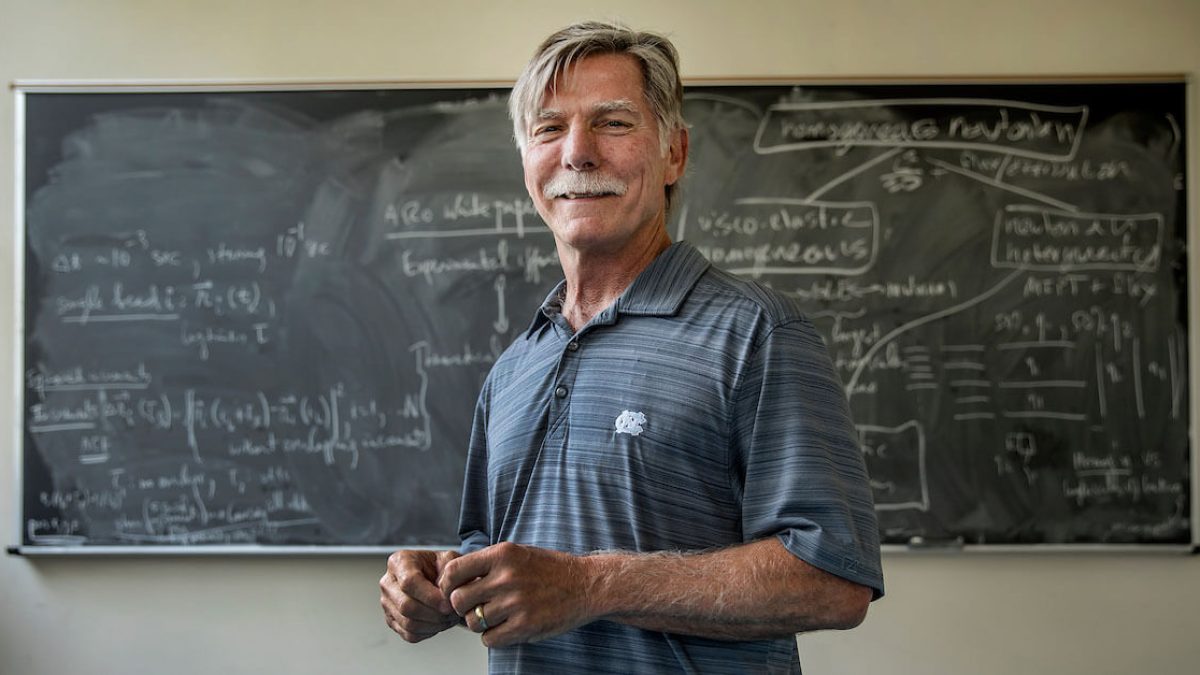
For more than 40 years — half of those at Carolina — Greg Forest, the Grant Dahlstrom Distinguished Professor of Mathematics, has generously shared his mathematical expertise with those around him.
“I grew up in New Orleans… a very social town. The idea that you would engage a bunch of people in something you’re passionate about is not foreign to me.”
For more than 40 years — half of those at Carolina — Greg Forest, the Grant Dahlstrom Distinguished Professor of Mathematics, has generously shared his mathematical expertise with those around him. He’s studied lung function, the effects of antibodies on viruses, and polymers, to name only a few areas.
Physicists, chemists, physician scientists, engineers. He’s worked with them all, oftentimes on the same project. The number of collaborators’ names Forest throws out is daunting, at times hard to even follow. He promises he could name more. It’s a testament to his willingness to help others solve problems that will benefit a greater good.
“Everything that I do is of this nature,” Forest said.
It started in the early 1970s when, as a Ph.D. student at the University of Arizona, Forest found himself under the mentorship of junior faculty members who not only expanded his understanding of mathematics, but provided opportunities to work in environments where the sciences converged. Their study of solitons — then an emerging field of the study of waves that draws from both physics and mathematics — regularly took them to Los Alamos National Laboratory, which boasted an intellectual community with members from around the world. Though the research here was highly competitive, the convergence of disciplines promised to result in the next giant leaps in science.
Not long after he arrived at Carolina in 1996, Forest, an expert in waves and complex liquids, joined a team led by Rick Boucher, M.D., seeking to understand how mucus functions in the lungs of people with cystic fibrosis.
So where does mathematics figure into medical research? For this kind of predictive modeling, mathematics is essential. So are physics and chemistry.
In the work to understand lung function, Forest had to understand the biological processes involved and the physics of those processes. He had to understand how air and mucus travel through the lungs. Significantly, he wanted to understand the mathematics of these processes. He created models and ran simulations, introducing new variables to predict how drugs or therapies will affect the lungs.
In the years since Boucher’s initial questions about cystic fibrosis, Forest has worn a path between his Phillips Hall office and the medical side of campus. The research eventually evolved in scope and ambition. Today, chemists, mathematicians, polymer physicists and computer scientists — led by physics professor Rich Superfine — work to create a fully interactive, predictive computer simulation of the human lung. The project holds enormous translational potential — turning scientific discovery into real-world solutions — specifically in terms of drug design and creation. The virtual lung they are creating will predict drug interactions long before the drugs are ever tested on humans, ultimately making drug trials more efficient.
A clinical trial, which has enrolled nearly every child with cystic fibrosis in Australia, is collecting lung samples in the hopes of creating a more highly detailed tool that can assess disease and monitor repair after drugs or therapies are introduced.
As a mathematician, Forest has expertise that transcends disciplines. His work with UNC Eshelman School of Pharmacy associate professor Sam Lai aims to understand how antibodies protect people from viruses, be it SARS or HIV. Work with Theo Dingemans and Daphne Klotsa, both professors in the UNC Department of Applied Physical Sciences where Forest is an affiliated faculty member, and Peter Mucha, a joint applied physical sciences and mathematics professor, seeks to create new polymers with hyperspecific physical properties.
“My days are full,” Forest said. “I wake up every day with so many options, so many cool things I’m going to think about and then meet with people about those things.”
Those “cool things” have the potential to affect lives of people near and far in myriad and tangible ways. Carolina brought Forest to campus to stand with its other researchers at the intersection of disciplines and advance high-impact research.
Carolina continues to hold fast to that inextricably interconnected view and application of the sciences. Forest’s approach is fundamental at Carolina, and the convergence of disciplines is ever evolving.
